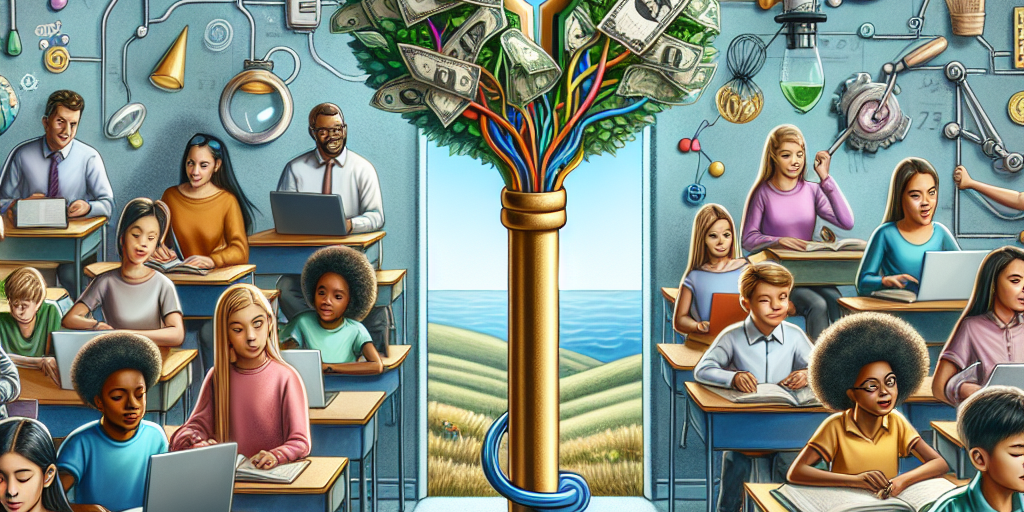Unlocking Potential: Why Investing in Education is the Smartest Choice for Future Growth
In today’s rapidly evolving global landscape, the key to addressing mounting challenges—from economic disparities and technological advancements to social integration and environmental sustainability—lies in one critical investment: education. As nations strive to overcome obstacles and lay robust foundations for future progress, the profound impact of education on individual and societal growth cannot be overstated. Investing in education is not just a moral imperative but also the most strategic avenue towards sustainable development and innovation.
The Power of Education in Economic Development
Education serves as a catalyst for economic growth. Countries with a highly educated workforce tend to experience greater economic stability, higher productivity, and more substantial growth rates. By fostering a culture of learning and skill development, education contributes to the creation of a versatile and adaptive labor force capable of driving innovation and adjusting to changing economic landscapes.
Moreover, education opens pathways to entrepreneurship, equipping individuals with the knowledge and skills needed to start and grow businesses. This can lead to job creation, reduced unemployment rates, and an overall increase in national GDP. Nations that prioritize education create environments where creativity and innovation can flourish, leading to breakthroughs that have significant economic and social benefits.
Social Integration and Equality through Education
Beyond economic transformation, education is a powerful tool for promoting social integration and equality. Access to quality education can level the playing field, offering marginalized communities the opportunity to break the cycle of poverty. Education empowers individuals with the knowledge and skills necessary to improve their living conditions, advocate for their rights, and participate actively in societal governance.
Investing in inclusive education systems that cater to diverse needs—regardless of gender, ethnicity, or socioeconomic status—ensures that all members of society can contribute to and benefit from national progress. This fosters a sense of community, reduces social tensions, and lays the groundwork for harmonious and cohesive societies.
Education as a Driver of Innovation and Technological Advancement
In the age of technology, where digital transformation is reshaping industries, the role of education in fostering technological literacy and innovation is vital. Education is fundamental in developing critical thinking, problem-solving abilities, and adaptability—skills necessary for navigating and leading in a digital world. By promoting STEM education (science, technology, engineering, and mathematics), countries can cultivate the next generation of innovators capable of addressing global challenges with cutting-edge solutions.
Furthermore, education encourages lifelong learning, a crucial element for adapting to technological advancements. By fostering a culture of continuous education, societies can ensure that their workforce remains relevant, skilled, and competitive on the global stage.
Breaking Barriers to Educational Access
Despite the undeniable benefits of education, barriers such as poverty, lack of infrastructure, political instability, and cultural biases still hinder access to quality education for millions worldwide. To unlock the full potential of education as a driver for growth, these challenges need to be addressed head-on with effective policies and international cooperation.
Investments in education should prioritize building resilient educational infrastructures, developing inclusive curricula, and training qualified educators. Additionally, leveraging technology to expand access through remote learning can play a pivotal role in reaching underserved populations, especially in rural and conflict-prone areas.
Conclusion
Investing in education is the smartest choice any society can make to ensure future growth. It is a long-term investment that yields exponential returns—not only in economic development but also in creating equitable, innovative, and sustainable societies. Education empowers individuals, transforms communities, and propels nations towards a more prosperous and harmonious future.
As the world faces increasingly complex challenges, doubling down on educational investments is crucial. It’s time for policymakers, private sectors, and international organizations to recognize and act upon the transformative power of education, unlocking the potential that lies within every learner, and building a brighter future for generations to come.







